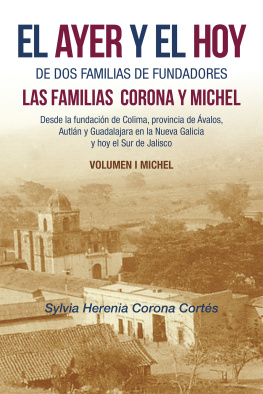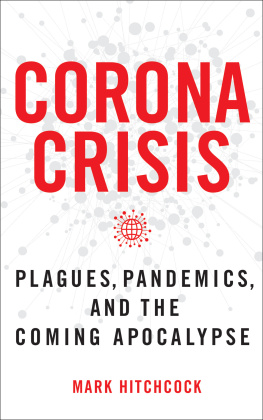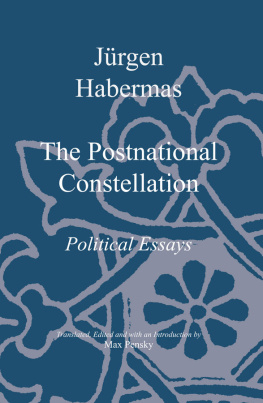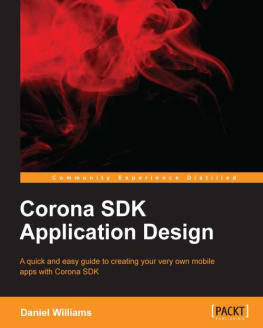Ignacio Corona - Postnational Musical Identities
Here you can read online Ignacio Corona - Postnational Musical Identities full text of the book (entire story) in english for free. Download pdf and epub, get meaning, cover and reviews about this ebook. year: 2008, publisher: Rowman & Littlefield, genre: Romance novel. Description of the work, (preface) as well as reviews are available. Best literature library LitArk.com created for fans of good reading and offers a wide selection of genres:
Romance novel
Science fiction
Adventure
Detective
Science
History
Home and family
Prose
Art
Politics
Computer
Non-fiction
Religion
Business
Children
Humor
Choose a favorite category and find really read worthwhile books. Enjoy immersion in the world of imagination, feel the emotions of the characters or learn something new for yourself, make an fascinating discovery.

- Book:Postnational Musical Identities
- Author:
- Publisher:Rowman & Littlefield
- Genre:
- Year:2008
- Rating:4 / 5
- Favourites:Add to favourites
- Your mark:
- 80
- 1
- 2
- 3
- 4
- 5
Postnational Musical Identities: summary, description and annotation
We offer to read an annotation, description, summary or preface (depends on what the author of the book "Postnational Musical Identities" wrote himself). If you haven't found the necessary information about the book — write in the comments, we will try to find it.
Postnational Musical Identities — read online for free the complete book (whole text) full work
Below is the text of the book, divided by pages. System saving the place of the last page read, allows you to conveniently read the book "Postnational Musical Identities" online for free, without having to search again every time where you left off. Put a bookmark, and you can go to the page where you finished reading at any time.
Font size:
Interval:
Bookmark:
Postnational Musical Identities
Cultural Production, Distribution, and
Consumption in a Globalized Scenario
Edited by
Ignacio Corona and
Alejandro L. Madrid

LEXINGTON BOOKS
A division of Rowman & Littlefield Publishers, Inc.
A wholly owned subsidiary of The Rowman & Littlefield Publishing Group, Inc.
4501 Forbes Boulevard, Suite 200
Lanham, MD 20706
Estover Road
Plymouth PL6 7PY
United Kingdom
Copyright 2008 by Lexington Books
All rights reserved. No part of this publication may be reproduced, stored in a retrieval system, or transmitted in any form or by any means, electronic, mechanical, photocopying, recording, or otherwise, without the prior permission of the publisher.
British Library Cataloguing in Publication Information Available
Library of Congress Cataloging-in-Publication Data
Postnational musical identities : cultural production, distribution, and consumption in a globalized scenario / edited by Ignacio Corona and Alejandro L. Madrid.
p. cm
Includes bibliographical references and index.
Discography: p.
ISBN-13: 978-0-7391-1821-4 (cloth : alk. paper)
ISBN-10: 0-7391-1821-8 (cloth : alk. paper)
1. Music and globalization. 2. MusicSocial aspects. 3. MusicPolitical aspects. I. Corona, Ignacio, 1960 II. Madrid-Gonzlez, Alejandro L. (Alejandro Luis)
ML3916.P675 2008
780.970905dc22
2007028344
Printed in the United States of America
 The paper used in this publication meets the minimum requirements of American National Standard for Information SciencesPermanence of Paper for Printed Library Materials, ANSI/NISO Z39.481992.
The paper used in this publication meets the minimum requirements of American National Standard for Information SciencesPermanence of Paper for Printed Library Materials, ANSI/NISO Z39.481992.
To Vanessa Knights,
In Memoriam
|
|
|
|
|
|
|
|
|
|
|
|
Postnationalism, transnationalism, globalization, hybridity, diaspora, and similar buzzwords have not only informed scholarly discourse and analysis of music, but also shaped the way musical productions have been marketed worldwide in recent times. While the construction of identity occupies a central position in such a context, there is a discrepancy between the conceptualization of music as an extremely fluid phenomenon (across formal or informal borders) and the traditionally monovalent notion of identity to which it has been historically incorporated. As such, music has always been linked to the construction of regional and national identities. However, current theoretical and critical scenarios that coincide in the importance of globalization have failed to account for how real or hypothetical postnational musical identities are. Taking into account that border studies in the past two decades introduced alternative (non-unitarian) conceptualizations of identity, and the apocalyptic pronouncement of the demise of the nation-State due to the pressures of globalization, this book proposes that there are ample opportunities for reflection on how the discourses of music and identity have been impacted or are re-written by these critical trends.
The chapters that comprise this volume, from either interdisciplinary or disciplinary enunciatory positions, address issues of postnationalism, transnationalism, globalization, and related topics by inquiring into how margin/center relations are re-evaluated by current music-market practices; how audiences are imagined and identities performed in a globalized economy; how music reflects and reflects upon new understandings of citizenship beyond the nation-State; how it works as a site of resistance against globalization or nationalist forms of oppression; and how the networks of music production, distribution, and consumption may (or may not) become postnational sites of identification. Likewise, several of the chapters highlight the importance of examining how the web of power and ideological relations in which music is produced and performed is inextricably linked to its sociological relevance and cultural impact. The contributing scholars, employing a variety of theoretical perspectives to illuminate and problematize these diverse issues, productively complement and at times challenge each others presuppositions, ideas, and findings. The books regional focus will provide the reader a closer look to the dynamic between the global and the local, which has consistently remained one of the fundamental themes in the expanding literature of globalization and cultural studies. The geographies studied in its four sections are: the U.S. and its musicological relations with Europe and Japan; the Caribbean basin; Mexico and the U.S.-Mexico border region; and South America, including two essays on Brazil, one the most important producers of world music in todays globalized scenario.
The seed for this book was planted on a graduate seminar on semiotic theory at The Ohio State University several years ago, in which the coeditors began a productive conversation that derived toward the cultural analysis of new trends of popular music across the U.S.-Mexico border region. These trends have in fact transformed regional genres, such as the traditional Sinaloan banda musicwhich in Guadalajaras musical hotbed of the 1990s became techno-bandaor cumbia that across the border region originated the grupero trend. These reformulated genres were originally disseminated along the migratory routes and circuits, oblivious to the re-enforcement of political borders. The specific focus on the musical experimentations of Tijuanas Nortec Collectivewhich represented yet another danceable musical hybridwas facilitated by Alejandro L. Madrids personal contact with the members of this group.
For providing assistance, valuable information, and/or musical samples, along the different stages of this project, due credits go to Colin MacQueen. Ignacio would also like to thank Maribel Corona, for her superb assistance in the preparation of the manuscript, to Aldo I. and Nadia, and to his parents, Ignacio Corona Padilla and Graciela Gutirrez de Corona, for their support during his studies at the Universidad de Guadalajaras Music Conservatory. He dedicates this book to his late mother.
This book would have not come to fruition without the formal and informal feedback of many friends, colleagues, and students whose time we have unabashedly consumed with questions about postnationalism. Special thanks to Arved Ashby for his enthusiastic intellectual support and for being always open to talk about ideas and to Margarita Mazo for selflessly sharing her ideas about multiple identity as her own work on this issue was taking shape. Alejandro also wishes to acknowledge Alejandro Madrid Solis and Ana Bertha Gonzlez for their continuous encouragement and Claudia Carretta for the precious company and love that made this book and many other endeavors possible.
Font size:
Interval:
Bookmark:
Similar books «Postnational Musical Identities»
Look at similar books to Postnational Musical Identities. We have selected literature similar in name and meaning in the hope of providing readers with more options to find new, interesting, not yet read works.
Discussion, reviews of the book Postnational Musical Identities and just readers' own opinions. Leave your comments, write what you think about the work, its meaning or the main characters. Specify what exactly you liked and what you didn't like, and why you think so.








